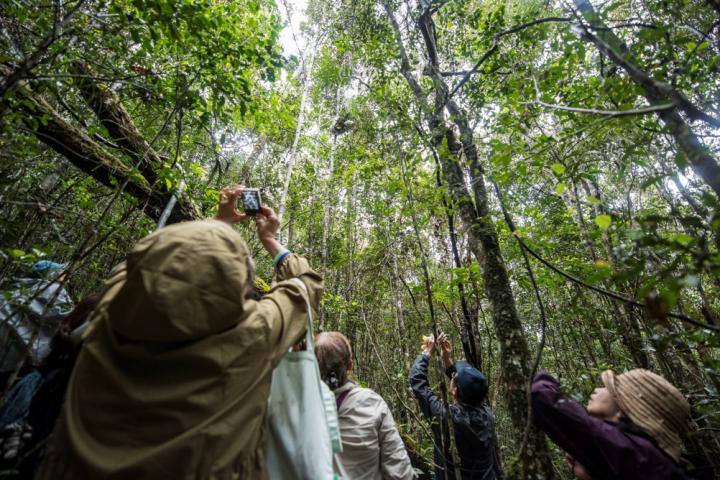
Credit: Joan de la Malla
The study states that failing to encourage tourists to do more on behalf of wildlife represents a missed opportunity for conservation. “We argue that the combination of emotional engagement and knowledge-driven action provided by wildlife-based tours will pave the way for a new area of conservation-oriented tourism” says Dr. Alvaro Fernández-Llamazares, the lead-author of the study from the University of Helsinki.
“Some years ago I took a whale-watching tour in Iceland, and it surprised me to see that while the guide provided very detailed information about the ecology, life cycle and foraging habits of whales, she did not mention any single time the huge conservation threats that these animals are facing. My colleagues had noticed similar patterns in other corners of the world. Concerned about this, we decided to thoroughly review the academic literature on wildlife-based tourism and examine to which extent was conservation messaging lacking in wildlife-based tours,” explains Dr. Fernández-Llamazares.
The authors carried out a comprehensive review of the academic literature on wildlife-based tourism, finding out that indeed conservation messaging is virtually absent from many mainstream wildlife-based tourism operations. Operators often fail to give information on wildlife conservation and opportunities for tourists to engage in conservation action.
Whale-watching tour in Húsavík (Iceland). Information on cetacean conservation and threats to the marine environment is argued to be limited in many whale-watching tours. Credit: Á. Fernández-Llamazares.
“There is increasing research evidence that wildlife-based tourism could help to transform the environmental knowledge, attitudes and behaviours of tourists through first-hand encounters with wildlife, complemented by effective conservation messaging,” says Dr. Fernández-Llamazares. “However, such conservation messaging is not always a priority for many wildlife-based tourism operators, who often fail to provide a well-designed environmental interpretation”.
Tools to engage tourists in wild-life conservation
The study documents new avenues that are broadening the potential of wildlife-based tourism, using alternative forms of communicating conservation-related messages. For example, empirical research shows that combining the emotional response of viewing wildlife with the educational benefits of a tailored interpretative programme provides tourism operators with numerous opportunities to cultivate the conservation potential of a tourism experience.
“I have experienced it myself: when you have the opportunity to see wildlife in situ, it creates a deep emotional connection between you and wildlife. However, as tourists we do not always have the tools to act beyond that experience, to transform the emotional bonds towards environmental stewardship,” says Aina Brias-Guinart, co-author of the study from the University of Helsinki. “For this reason, in this study, we thought of a set of principles that wildlife-based tourism operators could use to maximize the conservation potential of the tourist experience”.
The study introduces a toolbox of ideas for improving the conservation messaging of wildlife-based tourism operations, based on five principles: promote positive messaging, provide actionable information, engage tourists in research and practice, link experience with consumption choices and foster long-term interactions. These ideas focus on amplifying the emotional engagement among tourists participating in wildlife-based tours, and on empowering them to take purposeful conservation action.
###
Media Contact
Alvaro Fernández-Llamazares
[email protected]
Original Source
https:/
Related Journal Article
http://dx.




